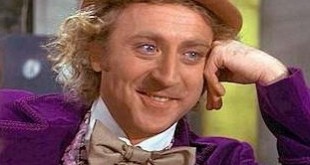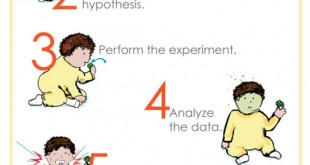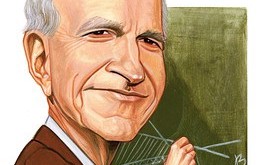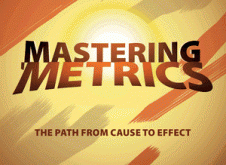The model of all economic models (wonkish) Economics is perhaps more than any other social science model-oriented. There are many reasons for this — the history of the discipline, having ideals coming from the natural sciences (especially physics), the search for universality (explaining as much as possible with as little as possible), rigour, precision, etc. Mainstream economists want to explain social phenomena, structures and patterns, based on the assumption that the agents are acting...
Read More »Three symptoms of the sorry state of economics
Three symptoms of the sorry state of economics 1. The best-selling economic book explains Sumo, but not economics. Freakonomics has sold more than 4 million copies making it one of the best-selling economic books in history. It tells us, for example, that Sumo wrestlers are likely to throw matches when their opponent is in danger of losing status with a loss. Freakonomics is, however, silent on monetary or fiscal policy. This is not negative statement about the book or the authors, but it...
Read More »One of my favourite classics (1)
One of my favourite classics (1) An absolute must-read for every social scientist — but if you don’t have the time, here’s the crash course illustration of Schelling’s ‘critical mass’ models: [embedded content]
Read More »The limits of probabilistic reasoning
The limits of probabilistic reasoning Almost a hundred years after John Maynard Keynes wrote his seminal A Treatise on Probability (1921), it is still very difficult to find statistics books that seriously try to incorporate his far-reaching and incisive analysis of induction and evidential weight. The standard view in statistics – and the axiomatic probability theory underlying it – is to a large extent based on the rather simplistic idea that “more is better.” But as Keynes argues – “more...
Read More »Economists — can-opener-assuming flimflammers
Economists — can-opener-assuming flimflammers Kids, somehow, seem to be more in touch with real science than can-opener-assuming economists … A physicist, a chemist, and an economist are stranded on a desert island. One can only imagine what sort of play date went awry to land them there. Anyway, they’re hungry. Like, desert island hungry. And then a can of soup washes ashore. Progresso Reduced Sodium Chicken Noodle, let’s say. Which is perfect, because the physicist can’t have much salt,...
Read More »Panglossian macroeconomics
Economic science does an excellent job of displacing bad ideas with good ones. It’s happening every day. For every person who places obstacles in the way of good science to protect his or her turf, there are five more who are willing to publish innovative papers in good journals, and to promote revolutionary ideas that might be destructive for the powers-that-be. The state of macro is sound – not that we have solved all the problems in the world, or don’t need a good revolution. Stephen...
Read More »Human capital and ‘bad taste in mouth’ models
Human capital and ‘bad taste in mouth’ models The ever-growing literature on human capital has long recognized that the scope of the theory extends well beyond the traditional analysis of schooling and on-the-job training … Yet economists have ignored the analysis of an important class of activities which can and should be brought within the purview of the theory. A prime example of this class is brushing teeth. The conventional analysis of toothbrushing has centered around two basic...
Read More »Economic growth
I came to think about this dictum when reading Thomas Piketty’s Capital in the Tenty-First Century. Piketty refuses to use the term ‘human capital’ in his inequality analysis. I think there are many good reasons not to include ‘human capital’ in economic analyses. Let me just give one — perhaps analytically the most important one — reason and elaborate a little on that. In modern endogenous growth theory knowledge (ideas) is presented as the locomotive of growth. But as Allyn Young,...
Read More »Econometrics and the ’empirical turn’ in economics
Econometrics and the ’empirical turn’ in economics The increasing use of natural and quasi-natural experiments in economics during the last couple of decades has led some economists to triumphantly declare it as a major step on a recent path toward empirics, where instead of being a deductive philosophy, economics is now increasingly becoming an inductive science. In their plaidoyer for this view, the work of Joshua Angrist and Jörn-Steffen Pischke is often apostrophized, so lets start with...
Read More »How to get published in ‘top’ economics journals
How to get published in ‘top’ economics journals By the early 1980s it was already common knowledge among people I hung out with that the only way to get non-crazy macroeconomics published was to wrap sensible assumptions about output and employment in something else, something that involved rational expectations and intertemporal stuff and made the paper respectable. And yes, that was conscious knowledge, which shaped the kinds of papers we wrote. Paul Krugman More or less says it all,...
Read More » Heterodox
Heterodox










